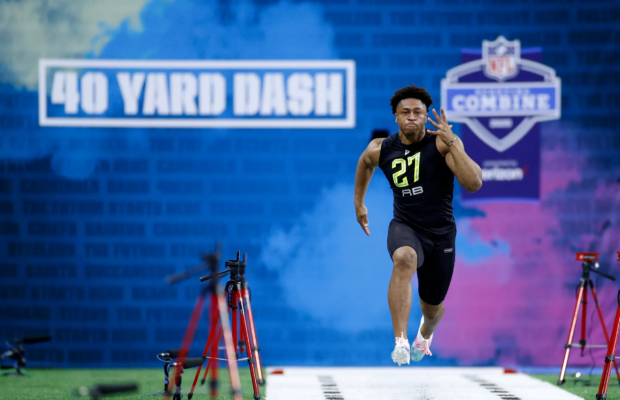NFL scouting combine loosens virus rules after blowback

By Arnie Stapelton
Players attending the NFL’s scouting combine won’t have to stay in a “bubble” as originally ordered after organizers loosened regulations Monday night after getting blowback for strict COVID-19 rules issued over the weekend.
In a memo sent to all invitees and obtained by The Associated Press on Monday night, the National Invitational Combine said, “We encourage all players to remain within the secure Combine areas at all times for your safety.
“However, if you would like to leave the secure areas during free time in your schedule, you are now permitted to do so at your own risk.”
The memo indicated prospects would still be limited to a single support person such as an athletic trainer or massage therapist they can bring to the combine, although players will be free to meet with others off-site.
“As has been the case throughout the pandemic, we continue to evolve our Combine policies and procedures in consultation with medical experts,” the memo said. “While masks continue to be required for air travel and during medical exams at the Combine (players and medical personnel), wearing a mask at other times while on site is recommended, but not required.”
The memo said that if players preferred “to remain in the secure areas and have approved medical support personnel (physical therapist, massage therapist, or approved athletic trainer) enter the secure area to provide medical treatments, please follow the previously communicated procedure” in which they would have to register that individual for approval by the NIC.
The changes came 48 hours after prospects were told in a memo they would be restricted to a “bubble” while at the combine, which rankled players and their agents.
The idea of a boycott was bandied about in response to the rules issued over the weekend, but several agents said they couldn’t in good conscience advise their clients to skip the combine, which will take place in Indianapolis March 1-7.
“I understand their grievances,” agent Leigh Steinberg said Monday before the rules were eased. He noted that most of the 324 prospects invited to the combine have been training with a team of specialists “and they want to take their trainers with them to the combine, and they might want access to their agent. They might have family members. And they may have an entire support group both for their physical and emotional health — and the NFL regulations seem unduly restrictive.
“Having said that, we will send our players because this is the Super Bowl of scouting events,” Steinberg added. “And you have players who have worked their whole lives to prepare for the NFL draft.”
Agent Joe Linta concurred, saying, “It’s not the time to be guinea pigs for change and use your career” as a bargaining chip
“It’s also in the interests of the NFL to have full participation,” Steinberg said.
The organization that oversees the operation of the annual NFL scouting combine informed draft prospects in a memo Saturday that they’d be in a bubble in secure locations, and that any player who violates the policy “at any time will be disqualified from further participation and sent home.”
These logistical decisions were made by the National Invitational Camp, which runs the combine, and not the National Football League itself.
The NFL resisted the idea of a “bubble” even during the height of the pandemic. And the league lifted almost all COVID-19 restrictions late in the season after dozens of players ended up contracting the Omicron variant in December. For the second year in a row there were no disruptions to the playoffs caused by the pandemic.
The memo added that players will be allowed to “invite one medical support person to assist them during the event.” That could be an athletic trainer, a massage therapist or physical therapist, for instance, subject to approval by the combine.
Steinberg suggested that’s unduly restrictive.
“There are weight coaches, there are speed coaches, there are masseuses, nutritionists. There’s a whole group of people surrounding each of these athletes,” Steinberg said. “And at the end of the day, these are heavier restrictions in terms of preventing COVID than exist outside of football.”
Linta questioned why the virus mitigation measures were only announced in the last few days, especially because the Omicron wave has begun to subside: ”And now is the time where you could have relaxed the rules. So, for them to implement the rules now, when COVID has gotten better, is a head scratcher for me.”
Anyone with access to players at the combine must provide proof of vaccination against the coronavirus and proof of a booster shot, if eligible. Also, medical personnel performing exams or providing treatment have to wear masks.
Face coverings are recommended for players and attendees at the combine but not required.
Last year’s combine was scuttled because of the coronavirus, as were in-person visits, leading teams to rely on athletes’ pro days in making their draft evaluations.
This year, the combine is set to return in person but with key changes that include fewer days on site, a reduced testing schedule and single-room accommodations, but the bubble is no longer part of the equation.
___
AP Sports Writer Michael Marot contributed to this report.